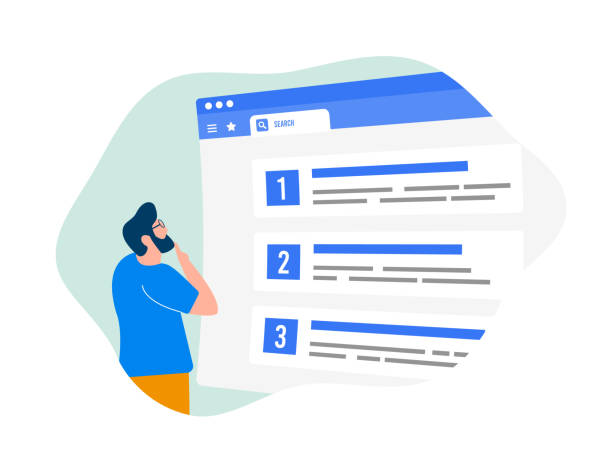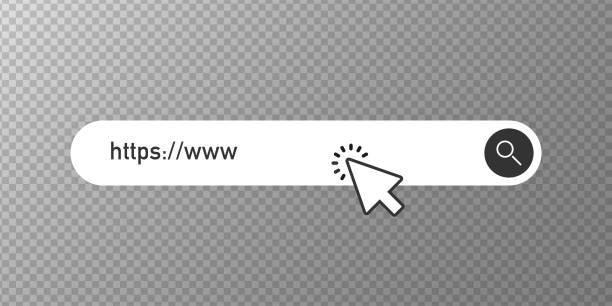How Bad URL Structures Can Negatively Impact SEO Search Ranking
How Bad URLs Can Tank Your Search Rankings
Your website's URL structure seems like one of those tiny details that shouldn't matter much for SEO. But the reality is, an ugly or illogical URL architecture can seriously sabotage your search engine rankings.
Poor URL naming conventions make it harder for Google to understand your content and create a frustrating experience for users.
Over time, these URL missteps can negatively impact how well your pages get indexed and ranked in the search results.
From spammy-looking URLs full of gibberish parameters to no-descriptor URLs that give zero context about the page topic, these bad URL practices act as little technical stumbling blocks.
By cleaning up your URLs to be more descriptive, keyword-rich, and hierarchical, you'll reinforce relevance for visitors and search engine bots alike.
Let's look at some examples of bad URL structures to avoid and tips for optimizing your URLs to maximize that SEO equity.

Ugly URL Structures Can Wreck Your SEO Rankings - Here's Why and What to Do
Your website's URL structure is one of those seemingly tiny details that can have an outsized impact on your search engine rankings.
Poor URL practices create a bad user experience and make it harder for Google to understand your site's content.
This can negatively affect your visibility in search results and cost you tons of potential traffic and customers.

Why Do URLs Matter for SEO?
Search engines like Google use the URLs on your site as a way to understand what your content is about.
Well-structured URLs that include relevant keywords serve as signposts pointing crawlers to the right places. They help associate content with potential search queries.
From a user experience perspective, URLs also enable visitors to get a preview of the page topic before clicking a link.
Descriptive URLs reinforce relevance and build trust.

Examples of Bad URL Structures
You know those long, garbled URL strings full of gibberish parameters and session IDs?
Yeah, those are terrible for humans and search engines alike.
Some common URL offenders:
- https://example.com/94722?query=product&ID=281638
- https://example.com/folder1/folder2/page.aspx?category=456&item=378
- https://example.com/~username/index.php?gclid=98712
Yuck.
Those types of URLs provide zero context about the content.
They look spammy and untrustworthy.
Users and crawlers will be left scratching their heads.
![]()
What's the Ideal URL Structure?
The best URL structures are clean, descriptive, and hierarchical - reflecting the structure of your site.
Some key best practices:
- Use real words, not codes or IDs
- Incorporate relevant keywords
- Group related content into logical subdirectories
- Keep it concise but avoid excessive URL shortening
- Use hyphens to separate words, not underscores
For example: https://www.mysite.com/mens-athletic-shoes/running-sneakers
Nice and simple!
This URL tells you exactly what to expect from the page.
It also maintains a clear path reflecting the site architecture.

Ever wonder why a sudden drop in Google rankings? I'll share a funny story...
A client launched a new website with their old URLs mapped to the new site structure using redirects. Within a couple months, they contacted me in a panic - rankings had plummeted across the board.
We did a full SEO audit and the issue jumped out immediately.
Their old URLs used ID numbers as the main folder structure like "/product-category/123456/". The new URLs used keyword folders like "/mens-clothing/jackets/".
Because they redirected the old ID URLs to the new URLs without creating new pages, Google saw the ID URLs as the originals.
It penalized their site for having a poor URL structure full of meaningless ID codes! We had to set up new pages for the proper URLs and redirect everything properly. Their rankings bounced back within a couple months.
Definitely learned an expensive lesson on how crucial URLs are to SEO!
It's not just about keywords either - a clean, logical URL structure tells Google your whole site is buttoned up.

Common URL Mistakes That Can Hurt Rankings
Here are some other URL faux pas to avoid at all costs:
- Using default URLs like /page1.aspx?id=19
- Letting your CMS generate convoluted URLs
- Failing to use redirects when changing URLs
- Allowing URLs with special characters (%20, etc.)
- Having duplicate versions of the same content
- No-descriptor URLs like /page1, /page2, etc.
- Mixing cases in URLs (/PRODUCTS/ vs /products/)
- Exposing actual file paths (.php, .html, etc.)
Those types of issues create a poor user experience and make it harder for Google to understand and index your content. Clean, optimized URLs are a must!

How to Check and Fix Bad URL Structures
Not sure if your URLs are properly optimized?
Try this:
- Use tools like Screaming Frog to crawl your whole site and analyze URLs. Look for long URLs, non-descriptive parameters, duplicate versions, etc.
- Analyze top pages in Google Analytics to see their URL structure. Look for patterns and conventions being followed (or not followed!).
- Do a Google site:search to see what pages Google has indexed for your domain. Gauge how user-friendly your indexed URLs appear.
If you find issues, don't panic! It's usually just a matter of using proper redirects and updated URL structures.
Google's John Mueller has confirmed that URL changes alone don't cause lasting ranking drops as long as its handled properly.
Here's the basic process:
- Decide on your new URL conventions and site architecture
- Use 301 permanent redirects to map old URLs to the new URLs
- Update all internal links to point to new URL structure
- Use robots.txt and other crawl directives to secure the transition
- Monitor server logs, indexing, and rankings closely
Changing URLs is tedious, but worth it to fix a messy URL structure dragging down your SEO performance.

Do URLs Directly Impact Rankings?
URLs themselves aren't a huge direct ranking factor for Google. But they do impact crawling, indexing, and the user experience - all of which feed into how Google judges and ranks your content.
John Mueller has commented that splitting content across multiple duplicate URLs can negatively impact indexing and rankings compared to consolidating that content in one location. So URLs tie into duplicate content signals.
URLs are also a relevance signal. If your URLs clearly convey the page topic, that reinforces for Google what that content should rank for. User metrics like click-through rates and engagement can reflect whether searchers find your URLs enticing or not.
So while URLs may not be the #1 factor, optimizing them is low-hanging SEO fruit that helps create a strong technical foundation for rankings.

Migrating a Site? Don't Mess Up Your URLs!
If you're migrating an existing site to a new URL structure or domain, that transition needs to be airtight from a URL perspective.
Common mishaps that can torpedo a relaunch:
- Failing to redirect every single URL properly
- Broken links throwing 404 errors
- Duplicate versions of pages getting indexed
- Forcing secure migration (http > https) improperly
- Changing URLs mid-migration messing everything up
- Search engines getting blocked temporarily
You need to meticulously map out the URL migration plan. Use change of address tools in Google Search Console to communicate the domain move.
And have an experienced dev on hand to monitor and troubleshoot URL issues throughout the process.
![]()
To Summarize: URL Optimization is URL Must-Do
Here's the key takeaways on why URLs matter so much for SEO:
- Help search engines understand content topics
- Create a user-friendly experience signaling relevance
- Impact technical performance like indexing and crawling
- Can be a footgun if changed improperly
- Are a low-effort opportunity to polish your SEO
Don't leave URL optimization as an afterthought! Map out a smart, descriptive structure from the outset that reinforces your site architecture and keyword targets.
Tidy up those URLs, baby! Your search rankings will thank you.
Key Points to Remember:
- Use real words in URLs, not codes/IDs
- Incorporate relevant keywords in URLs
- Group content into URL folders/subdirectories
- Stick to conventions like hyphens, lowercase only
- Always 301 redirect properly when changing URLs
- Check top landing pages for URL conventions
- Audit for messy URLs & duplicate versions
- URLs aid crawling, indexing, and relevance signals
- Get professional help for major URL migrations!
- An ugly URL structure can hurt SEO over time

FAQ
What is the importance of keywords in SEO?
Keywords are a core part of search engine optimization (SEO). They help search engines understand what a piece of content is about and match it to relevant search queries from users.
How do meta tags impact SEO?
Meta tags like the meta description provide a concise summary of a webpage's content. While not a direct ranking factor, meta descriptions can influence click-through rates from the search engine results pages (SERPs), impacting traffic.
How can a Google algorithm update negatively impact my rankings?
Major Google updates can cause fluctuations and drops in rankings if your website does not follow Google's updated guidelines and best seo practices. Staying up-to-date on Google's latest algorithms and making preemptive optimizations is crucial.
What is a negative search footprint and how can I avoid it?
A negative search footprint refers to having low-quality, spammy, or malicious content associated with your brand name that shows up in search results. Proactive reputation management and removing/disavowing bad backlinks are key seo tactics.
How important are search engines to SEO?
Search engines like Google are the primary way users discover content online, so optimizing for them is essential. Understanding search engine ranking factors and the search engine's preferences shapes all SEO efforts.
What is negative SEO and how can I protect my site?
Negative SEO refers to malicious tactics like hackers building tons of spammy links to try and penalize a competitor's domain name. Monitoring your backlink profile and disavowing bad links mitigates the impact on your SEO performance.
What are some common on-page SEO tactics?
On-page optimization tactics include optimizing URLs, title tags, headings, image alt text, internal linking, and naturally incorporating target keywords in a page's content and meta descriptions.
How can I optimize my URLs for better rankings?
using descriptive, keyword-rich URLs helps search engines understand page content better. Avoid non-descriptive URLs with parameters, numbers, etc. Change URLs carefully and set up 301 redirects when making any URL updates.
What ranking factors does Google consider?
Google has hundreds of ranking signals like Core Web Vitals, content quality, mobile-friendliness, security, site architecture, and backlink profile. Following Google's best practices maximizes your ability to rank.
Will changing URLs negatively affect my rankings?
Changing URLs alone does not directly hurt rankings as long as you properly utilize 301 redirects and update internal links. However, improper URL migrations can temporarily cause drops in rankings and traffic.
How important are backlinks as a ranking factor?
Backlinks from authoritative, relevant external websites act as endorsements and remain one of Google's most important ranking signals. Quality backlink acquisition is crucial for SEO.
What are proper SEO practices vs. unethical tactics?
SEO best practices focus on creating a good user experience through quality content, fast page speeds, good site structure, etc. Tactics like keyword stuffing, cloaking, and buying links violate search engine guidelines.
What happens if Googlebot encounters a 404 page on my site?
A 404 or "page not found" error signals to Google that a page is no longer available. Too many 404s creates a poor user experience and can negatively impact a site's indexing and rankings.
How do low-quality pages affect overall SEO?
Having a lot of thin, keyword-stuffed, or auto-generated low-quality pages on your site is a negative ranking factor for Google. It can cause organic traffic drops if not cleaned up.
What has John Mueller from Google said about redirects?
John Mueller has stated that properly setting up 301 permanent redirects should pass full SEO value and rankings to the new URLs. He stresses doing redirects correctly.
Can bad website structure cause Google ranking drops?
Yes, a bad site architecture with lots of levels, few internal links, duplicate content issues, etc. can negatively cause affect indexing issues for Google and hurt rankings on the search engine's results pages.
What does Google see as a potential ranking signal?
Google has hinted that user engagement metrics like bounce rates, dwell time, conversions, etc. could be potential future ranking signals if a page/site doesn't satisfy the searcher's need or intent.
How would Google decide to penalize a site?
Google would likely penalize a site by demoting it in rankings, sending less crawler traffic, ignoring spammy pages, or in severe cases, blacklisting the entire domain if it violates search quality guidelines.
What has John Mueller said about URL parameters?
John Mueller has said search engines can have a harder time understanding and consolidating content when URLs contain multiple redundant parameters. Using clean, keyword-rich static URLs is preferred.





